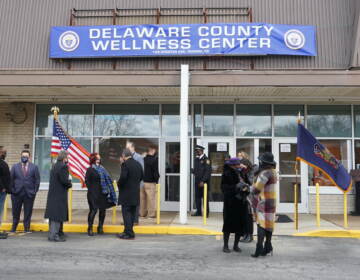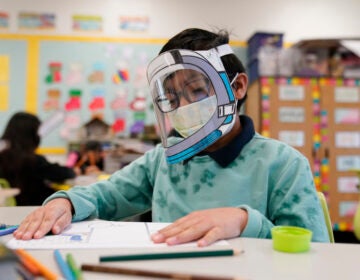Einstein patients crowdfund to save hospital as COVID-19 takes ‘devastating’ toll
Einstein is struggling to survive a pandemic that has ripped through the North Philadelphia community it serves. Its patients are stepping up to save it.
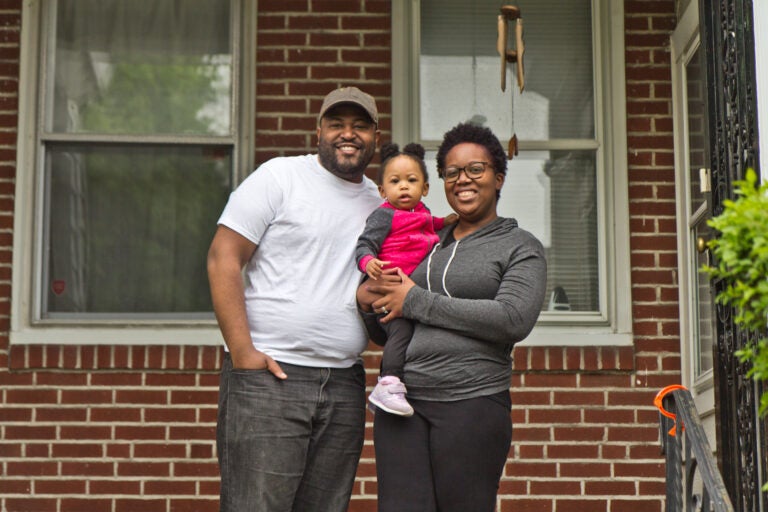
Jordan and Nyla Ford with their 14-month-old daughter Noelle at their home in Philadelphia. (Kimberly Paynter/WHYY)
When the pandemic forced Takia McClendon to suspend her work as a personal trainer, she wanted to find a different way to support wellness in her community. She called a friend who works at Einstein Medical Center. The friend had a suggestion that hit close to home: help fundraise for the North Philadelphia hospital.
McClendon jumped at the chance. She was born at Einstein. Her grandmother was treated for colon cancer there. Other family members have gone there for medical treatment over the years as have their neighbors and friends, many of whom live in predominantly nonwhite neighborhoods with few other nearby options for medical care and a large number of elderly or otherwise vulnerable residents.
McClendon’s friend’s suggestion came at an urgent moment. While the 156-year-old hospital is not at risk of closing, the novel coronavirus pandemic has upended its finances and recently administrators made the difficult decision to furlough workers.
Meanwhile, the communities served by the hospital have some of the highest rates of positive coronavirus tests in Philadelphia. While the scarcity of testing masks the true number of infected people, Einstein’s 19141 zip code has had a 40% positive rate, according to city data. Neighborhoods just to the north, including East and West Oak Lane, where McClendon grew up and many patients live, had the city’s highest rate at 50%.
Soon after talking to her friend, McClendon hit publish on an impassioned pitch that revolved around the virus’ disproportionate impact on the African American community she is part of, that she believes Einstein serves.
“Although the coronavirus does not choose its victims based on race or socioeconomic status, we must acknowledge that a history of institutionalized racism, discriminatory housing practices, food insecurity and more, are all contributing factors to this large discrepancy,” she wrote in a fundraising pitch for the medical facility posted at CityFitGirls, a woman’s running club she runs.
In the weeks since McClendon went live with her fundraising call, she’s thought a lot about the need to keep working to improve health in the communities served by Einstein — and keep Einstein there to be part of that work.
“This conversation extends far beyond … the coronavirus,” McClendon said. “I hope that after this is over, we can maintain some momentum in addressing the issues that cause the underlying health conditions that are leading to these high death rates in the Black community.”
“Patients don’t have anywhere else to really go”
Dixie James, the medical center’s president and chief operating officer, describes Einstein’s current scenario in stark terms.
Albert Einstein Healthcare Network (AEHN), the organization that runs the North Philadelphia medical center, expects revenues from patient services to come in $105 million below projections this fiscal year, a drop of about 8% that could have long-term consequences.
Already, executives and other staff have taken pay cuts. The organization has furloughed some employees in its corporate offices and other areas. More tough decisions will have to be made.
“That is a devastating financial undertaking for any health system, but just imagine a safety-net hospital like Einstein that cares for the underserved, that doesn’t operate with a margin of cushion. There’s not room to absorb any of that,” James said.
The losses resulted from the halting of elective surgeries and other profitable hospital services during the pandemic, James said. In addition, the hospital has been spending to convert non-ICU floors into ICUs for COVID-19 patients, install more ventilators to keep the most critically ill patients alive, and launch an in-house coronavirus testing program that quickly identifies infected patients.
It has also poured time and resources into combating shortages of personal protective equipment (PPE) for nurses, doctors, and other frontline workers. The staff previously used 750 isolation gowns daily; now they need 5,000 per day, James said. Nurses have taken to cleaning and reusing gowns they normally would throw away, said Peg Lawson, an emergency room nurse and co-president of the Einstein Nurses United union.
Like many other hospitals that serve low-income patients, Einstein Medical Center has faced financial challenges for years. AEHN says 86% of its patients are insured by government programs such as Medicaid, which offers low reimbursement rates for treatment compared to private insurance. Even before the pandemic, Moody’s Investors Service had downgraded the organization’s credit rating to its highest junk status, citing several years of low margins and a rising debt burden.
“There’s a concern on a lot of employees’ parts about the financial stability of the hospital down the road,” Lawson said.
AEHN, which also has two other medical centers and a rehabilitation center in the Philadelphia area, as well as primary care and specialty physician practices, has proposed merging with Jefferson Health. In February, the Federal Trade Commission moved to block the deal, saying it would reduce competition and increase health care costs in the region. The fate of the merger plan remains to be resolved.
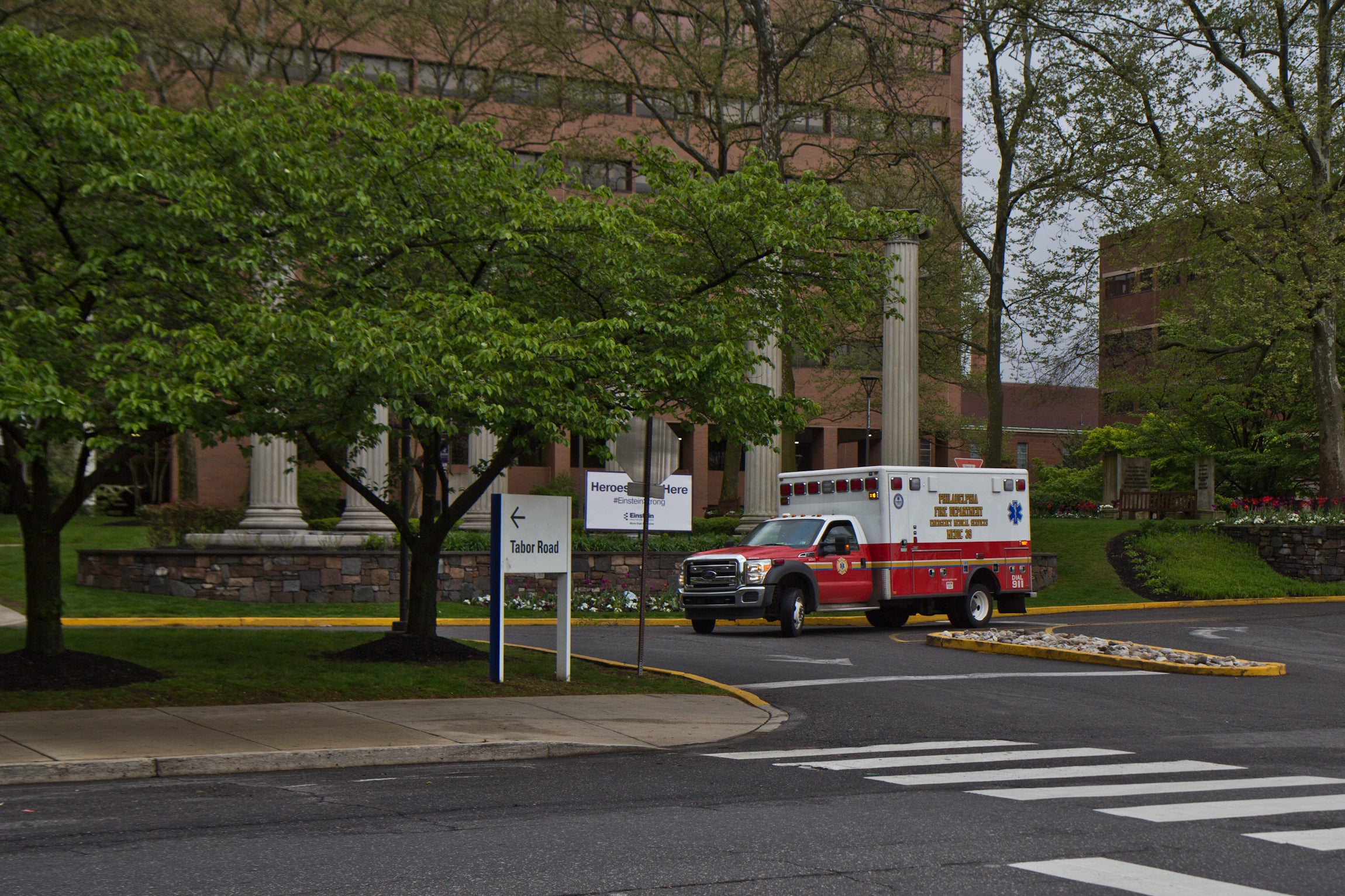
Einstein’s emergency room is the main healthcare provider for many residents from the surrounding neighborhoods, which include Logan, Ogontz, Olney-Feltonville, and East and West Oak Lane, Lawson said. In normal times, patients come in for relatively minor aches and pains, untreated acute injuries like sprains and fractures, gynecologic complaints, and tests for sexually transmitted diseases, or are brought in by paramedics after being found intoxicated or overdosed on the street, she said.
“Patients don’t have anywhere else to really go. They don’t have primary care physicians, so they come to us for all of their issues and concerns,” Lawson said.
The aforementioned neighborhoods have higher-than-average rates of poor physical and mental health, according to a report last year from the Philadelphia Health Department and Drexel University’s Urban Health Collaborative.
In Logan, where the medical center is located, residents have higher rates of chronic obstructive pulmonary disease, heart disease, smoking, and obesity, which are all risk factors for severe COVID-19 disease. James said people in nearby ZIP codes have average life expectancies 20 years shorter than residents of areas further out.
“These are some of the most challenging neighborhoods in the nation,” James said. “This is a population that is tremendously disadvantaged from a health care access perspective, and it’s plagued with other socioeconomic issues that disadvantage them around housing and education and poverty, all the things that we know make it challenging for people to access health and stay well. We operate in that environment.”
James said Einstein has long focused on improving residents’ overall health by getting more people into preventive care programs, often in cooperation with community organizations like the Indochinese American Council (IAC), a nearby nonprofit that provides services to immigrants.
In the past, Einstein has sent over staffers to perform off-site cancer screenings and provide women’s health education, IAC executive director Le-Quyen Vu said. The hospital will occasionally provide an open block of time for mammograms and have the IAC schedule in local women for exams, she said.
Vu said Einstein has also hired a more diverse staff over the last two decades, and has multilingual employees to assist the surrounding neighborhoods’ many immigrants from China, Vietnam, Cambodia, El Salvador, Dominican Republic, and French-speaking parts of Africa. Its outreach efforts to encourage preventive care visits are ultimately good both for residents and Einstein’s bottom line, Vu said.
“They wanted to respond to the needs of the community, but they also wanted to reduce the cost of emergency care,” she said. “They do have outreach programs and they do have caseworkers that support non-English-speaking people getting access to health care and to social service programs, so that they don’t have to treat patients in the emergency room with a bill that they can’t collect the money for.”
Service cuts would be felt outside Einstein’s walls
Einstein’s programs in the community include a clinic it runs at Enon Tabernacle Baptist Church on Cheltenham Avenue. Churchgoer Nyla Ford first learned about Einstein through the clinic, which provides care for common ailments as well as chronic conditions like diabetes and high blood pressure.
When Ford and her husband decided to have a child, she again came across the hospital, and after doing her research, liked it so much that they decided to buy a house a six-minute drive from the hospital, near the Germantown-West Oak Lane line.
They joined Centering Pregnancy, Einstein’s prenatal program, for medical exams, parenting classes, and a support group with other expectant parents. When she experienced complications, the maternity staff taught her breathing exercises and worked with her to ensure the delivery went as planned, she said.
“It was amazing,” said Ford, who gave birth to her daughter Noëlle in February 2019. “My pregnancy was diagnosed as high-risk because I had gestational diabetes. But even through that, the team was very supportive to the point where I didn’t have to be induced. Everything just happened naturally.”
The hospital is now facing its own risky scenario. It’s inevitable that any service cuts would be felt beyond the building’s walls, in the communities that have come to depend on the institution.
“They’ve been in the community doing a lot,” Ford said. “They did breast screenings as well, which is important to me because my mom passed away from breast cancer.”
Ambrose Liu, project director of Olney Culture Lab, a local arts organization, says Einstein was quick to offer its support when Liu started his group seven years ago.
The hospital has sponsored the group’s annual Olney Youth Arts Festival, its Choir Festival, and a planned new series of art events called the Olney Embrace Project, he said. Einstein is also closely involved with the North 5th Street Revitalization Project, which promotes Olney’s main business district and organizes neighborhood cleanups and cultural events.
“Einstein is a big entity, but they’re supportive of many others in the constellation of social service and arts and cultural organizations in the greater Olney neighborhood,” Liu said. “They have a very deep interest in supporting cultural activity in their neighborhood.”
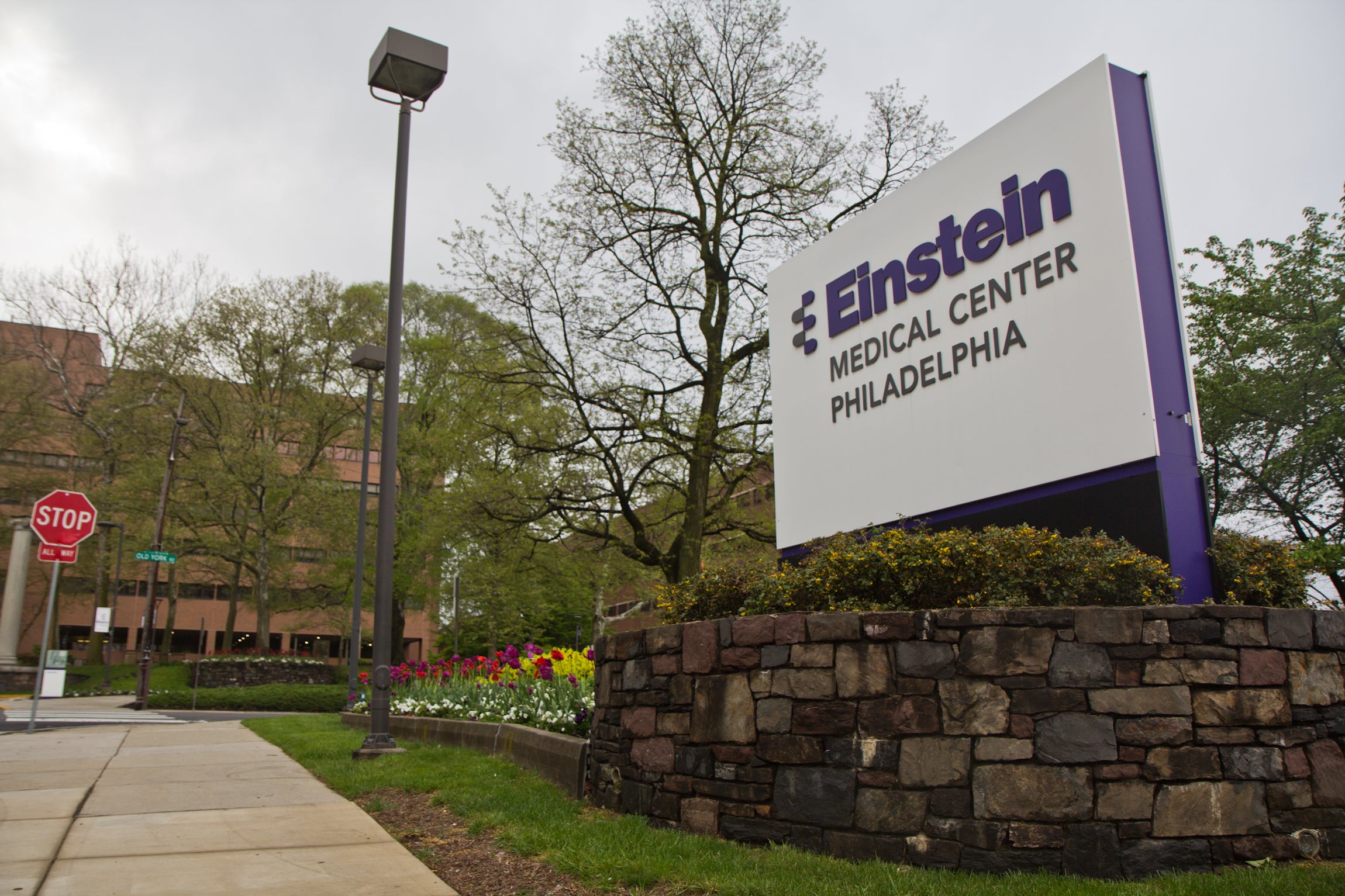
When he heard about Einstein’s financial problems and furlough plans, “that definitely made me go … I hope they’re doing okay and are able to weather the current state of affairs,” he said. He describes himself as a “friend” of the hospital. The current crisis, he said, gave him pause.
Liu and others say they will be rooting the hospital, paying attention to its struggles and the community-based efforts to support it.
For more than a decade Einstein has partnered with the Logan Civic Association to put on Let’s Love Logan Day, an annual community festival, LCA chair Charlene Samuels said.
Samuels, who is also constituent services director for Councilmember Helen Gym, said the Einstein organization has shown in many ways that it cares about the people of Logan-Olney, and the residents appreciate having a major medical center right in their neighborhood rather than having to make the trip to Temple or another hospital.
Samuels recalled taking her daughter to Einstein when the girl was 9 months old and began experiencing convulsions. The hospital staff treated her until she was transferred to Children’s Hospital for specialized care.
“They were right on point. They took care of my baby,” she said. “If we didn’t have Einstein for this community, you would probably see more people dying of things that they don’t have to die from, because they don’t have access to medical care. So it’s very important that Einstein really stays in our community.”
To donate to the CityFitGirls fundraiser for Einstein, visit https://covid-19-crisis-response.everydayhero.com/us/city-fit-girls
WHYY is your source for fact-based, in-depth journalism and information. As a nonprofit organization, we rely on financial support from readers like you. Please give today.



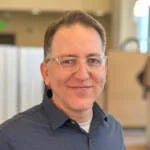

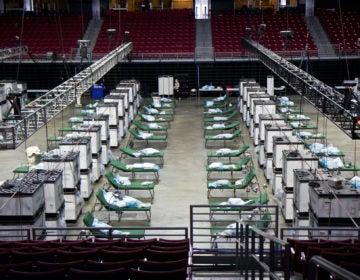

![CoronavirusPandemic_1024x512[1]](https://whyy.org/wp-content/uploads/2020/03/CoronavirusPandemic_1024x5121-300x150.jpg)
